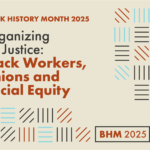Every time we have an election, we hear lots of talk about low young voter turnout and the misguided perception that youth are apathetic. But recent findings from a study on young people’s political participation will hopefully put this misperception to bed once and for all — or at least put it down for a much-needed nap.
Yes, youth voter turnout is lower than that of the overall population. In the last federal election (2011), only 39 percent of young people aged 18 to 24 voted and only 45 percent of young people aged 25 to 34 voted. This compares to 61 percent of the overall population.
The fact that the majority of youth do not vote is problematic, but jumping to the conclusion that low voter turnout is due to apathy would be ill-informed, to say the least.
After the 2011 federal election, Elections Canada conducted a National Youth Survey on voting trends among young Canadians and looked at the reasons why they vote or why they don’t. The survey found that the most common reasons for not voting were related to personal circumstances such as the following:
- They were too busy with work, school, or family, or travelling at the time, or
- They felt they didn’t have sufficient knowledge about the parties, candidates, and issues.
But do these reasons mean that youth are apathetic? Not really. In fact, a recent study conducted by Samara Canada shows just the opposite: When looking at rates of participation in political and civic life beyond voting, the study found that young Canadians rate 11 percent higher, on average, than older Canadians across 18 different forms of political participation.
For example, compared to Canadians aged 30 or older, youth are more likely to:
- Attend a political meeting or speech;
- Volunteer for a candidate or campaign;
- Give a political speech in public;
- Organize a public event about politics;
- Sign a petition;
- Boycott or buy products for ethical, environmental or political reasons;
- Protest or demonstrate;
- Volunteer for a charitable cause;
- Be active in a group or organization;
- Work with others to solve a community problem;
- Discuss politics and political issues face-to-face or over the phone;
- Discuss via email or text message;
- Circulate repost or comment; or
- Follow a politician or political group on social media.
Looking at this data, it’s clear that youth are far from apathetic. They are actually very engaged—and much more so than the overall population. So why doesn’t this translate into voting?
Who is apathetic towards whom?
Samara’s study suggests that the reason may be tied to whether youth are contacted by political parties or candidates. The study found that, although young people are the most politically engaged, they are also the group least likely to be contacted by a political party, candidate, or Member of Parliament. Nearly half (45 percent) of youth aged 18 to 29 were not contacted (by mail, phone, email, in person, or on a social network), compared to only 25 percent of people 56 or older.
Not surprisingly, Election Canada’s 2011 National Youth Survey found that voter turnout for youth contacted by political leaders was 15 percentage points higher than those not contacted.
Connect with young voters
So what does this tell us? Engagement matters, but the problem is not that young people aren’t engaged, it’s that politicians and candidates aren’t engaging with them.
We can all help break the cycle of low young voter turnout simply by starting a conversation. Engage with young people — they are more active than we’ve been led to think.
For more information:
- Visit the CLC’s Youth Votes Matter page
- Check out the CLC’s Young Workers Facebook Page
- Watch the CLC’s Youth Vote webinar #YouthVote2015: Better strategies to talk to young people about voting





